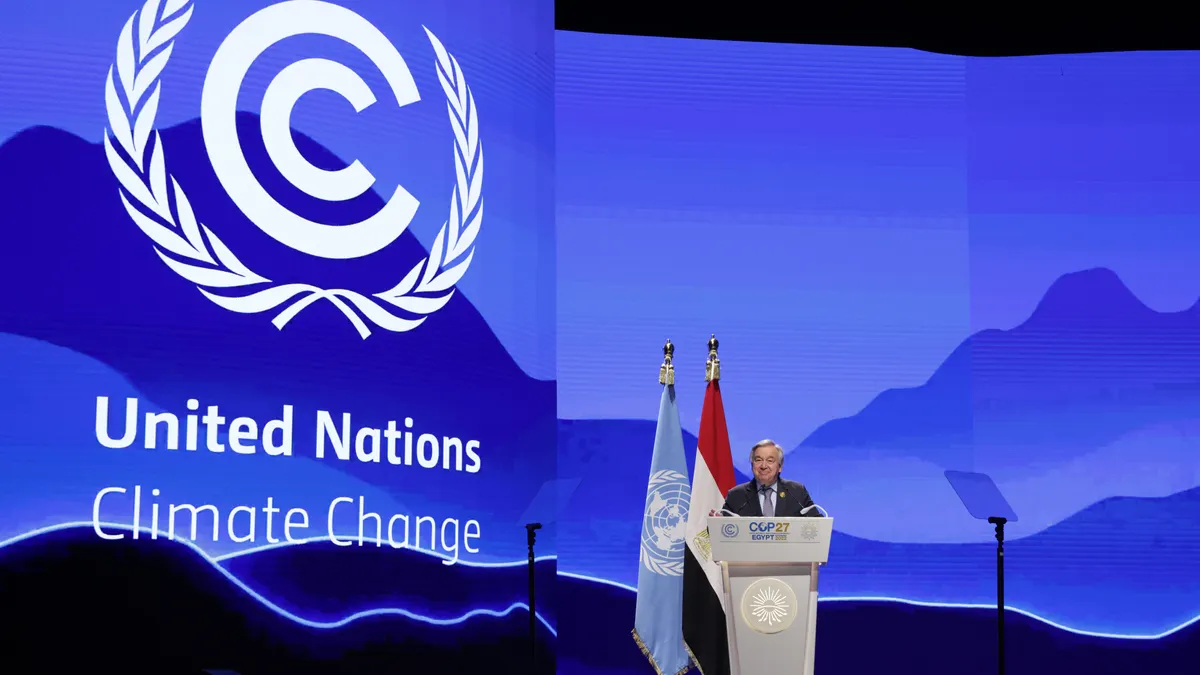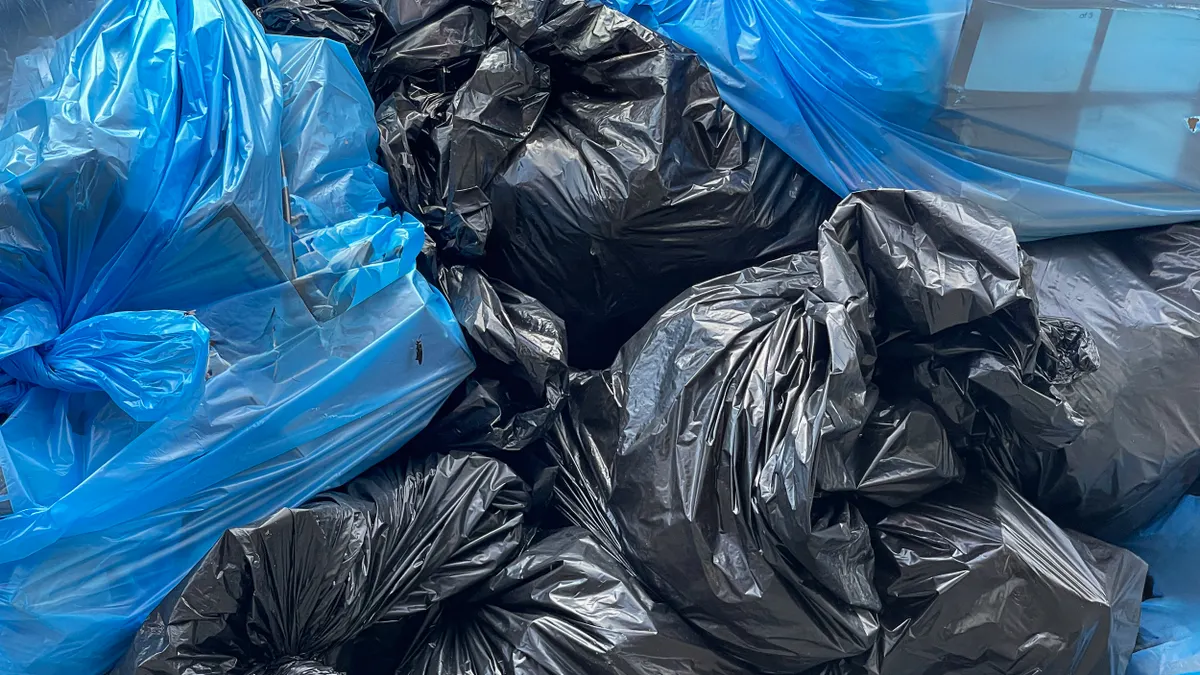As the United Nations moves forward with negotiating a global treaty to end plastic waste, environmentalists, recyclers and plastics industry representatives say they’re encouraged to see UN member countries enthusiastic about ending plastic pollution.
Yet recycling and waste industry stakeholders are split over whether the final treaty should focus on mandatory goals that apply to all countries or on country-specific goals that have voluntary components. UN member countries themselves left last week’s meeting in Uruguay with the same split, according to Reuters.
Last week’s UN negotiations were just the first of five planned meetings to craft a legally binding agreement by 2024, and it could be years before it’s clear how the treaty will affect the waste and recycling industry. Stakeholders anticipate the treaty will eventually affect operations and plastics management practices because it is expected to include numerous detailed requirements or regulations.
“The next stage of negotiations will be more challenging, as countries must agree on the technical measures and rules,” said Eirik Lindebjerg, the World Wildlife Fund’s global plastics policy manager, in an email. The next meeting will be May 2023 in Paris.
Numerous NGOs and waste industry stakeholders either attended last week’s meeting as delegates or sent comments and perspectives for members of the Intergovernmental Negotiating Committee to consider while crafting the treaty. Erin Simon, a WWF vice president and its head of plastic waste and business, said the conversation around plastics has shifted in recent years, and the tone at the Uruguay meetings was one of urgency.
“No matter how ambitious local targets have been, no matter the number of different types of legislation [that have] been put into place, we've still seen the plastic pollution crisis continue to grow,” she said.
One side of the divide consists of delegates who want the final treaty to focus on mandatory global measures that reduce overall plastic production. This includes the High Ambition Coalition, which consists of about 40 countries, including most of Europe, Canada, Mexico, Australia and South Korea, but not the United States. UN Secretary-General António Guterres appeared to back this approach when he recently tweeted, “plastics are fossil fuels in another form & pose a serious threat to human rights, the climate & biodiversity. I call on countries to look beyond waste and turn off the tap on plastic.”
The other side is advocating for a model the United States supports, which would call for ending plastic pollution by 2040 but uses voluntary action plans and doesn’t specifically address plastic production, Reuters reported.
The plastic industry in the U.S., including the American Chemistry Council, said it “strongly cautions governments against production caps on plastics.” Such caps could adversely affect the plastic manufacturers’ planned infrastructure investments that ACC says will benefit waste management and “scale up a more circular economy,” said Joshua Baca, vice president of ACC’s plastics division.
This U.S.-backed model could resemble the Paris climate agreement, but a strategy activists from the Center for International Environmental Law said that approach is a “weakness” that allows plastic manufacturers to continue creating new plastics, according to a statement from Carroll Muffett, CIEL president and CEO.
“Global commitments, and binding targets remain both necessary and achievable, but it will demand the U.S. and other countries join the rest of the world in pairing claims of high ambition with the policies that high ambition demands,” he said.
Many major brands are already taking part in voluntary plastic reduction and recycling goals through global initiatives like the Ellen MacArthur Foundation’s Plastics Pact. These voluntary goals are critical to moving the needle, Simon said, but they are not enough when brands are creating their own goals in a vacuum.
“That’s why we need a coordinated approach that is going to provide businesses with regulatory consistency across the globe and, in turn, incentivize more sustainable production and consumption,” she said.
WWF and EMF partnered to head a business coalition at the negotiations meetings to discuss how the future treaty could help businesses meet streamlined regulations or rules instead of a patchwork of plastic reduction or recycling rules based on the countries where they operate.
“At the end of the day, they're the ones who are going to have to rethink their materials, invest in systems and likely going to have to pay for that [recycling] recovery,” Simon said.
Future treaty negotiations also offer opportunities for more waste managers and recyclers to plug into the conversation, she said, particularly around standards for high-quality recyclable materials, strategies for investing in infrastructure for managing plastics and how to more effectively keep plastics out of the environment. Simon said several recycling companies traveled to Uruguay to take part in advocacy, and trade groups including the National Waste and Recycling Association, the Solid Waste Association of North America and the Insttute of Scrap Recycling Industries have said they are monitoring the negotiations.
Advocates said future treaty negotiations should include more voices that might otherwise be left out of plastic policy conversations. The Global Alliance for Incinerator Alternatives praised the inclusion of waste picker perspectives in the most recent UN negotiations. Informal recyclers are asking for provisions in the treaty that will help them be paid fairly for their services and do their work more safely.
“The inclusion of waste pickers in the negotiations signals that countries are acknowledging the pivotal role that waste pickers play in creating solutions to the plastic crisis, and should therefore be recognized as key stakeholders in the treaty process,” GAIA said in a statement.



















